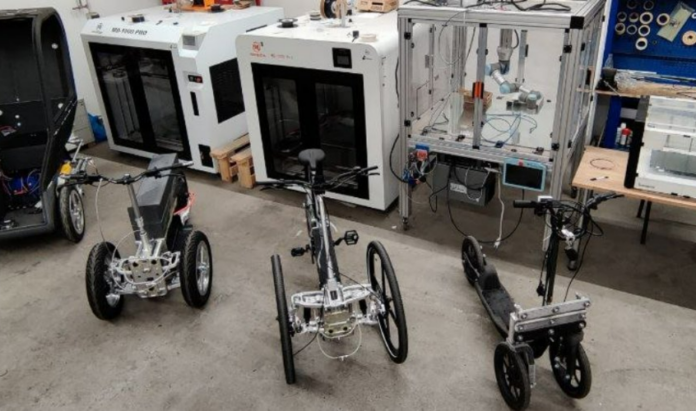Mobotiq wants to change the way we think about vehicles, ownership, and how machines move through cities. Its proposition sounds simple: your car sits unused most of the time—why not make it earn?
This isn’t just another app trying to nudge into the car-share market. Mobotiq is building on Web3 principles, using blockchain and smart contracts to let owners rent out their vehicles peer-to-peer, with no platform cut and no corporate middlemen. The aim is full transparency, autonomy for users, and direct access to earnings.
It’s a model that leans heavily on decentralisation—not just in how contracts are managed, but in how the machines themselves are built. Mobotiq combines blockchain with 3D printing, offering a different approach to vehicle manufacturing. That might sound abstract, but the team says the end result is practical: people being able to build micro-fleets or even their own small rental businesses without the typical friction of regulation, paperwork, or fees.
One key piece of this is the Alvin Box, which retrofits scooters to work with the Mobotiq system. The box gives each scooter a unique identity on the Internet Computer Protocol (ICP), along with its own wallet, camera, GPS, and other key tools for on-chain interaction. That means anyone with an Alvin-equipped scooter can set it up for rental, and anyone with a phone can rent it and pay directly.
For riders, there’s no waiting around for approvals or corporate permissions. For owners, there’s no payout delay or platform commission. Everything runs through smart contracts. It’s a system that suits local entrepreneurs, especially in cities where scooter usage is high but ownership models are still stuck in traditional leases.
The company’s partnership with Autonom, a platform that helps deploy decentralised scooter rental operations, shows how the system is being packaged for real use. Aspiring operators can set up their own fleets on the network, with all the infrastructure handled on-chain. Mobotiq’s framing is that it’s less about competing with scooter companies, and more about replacing the need for them altogether.
It’s not just scooters, either. Mobotiq sees this framework expanding into cars, e-bikes, and other urban transport vehicles. Anything that spends most of its time unused could, in theory, be plugged into the network and made rentable by the hour or the kilometre.
That idea has caught the attention of those looking for more open systems in mobility. Whether it can gain traction depends on user trust, local regulations, and technical reliability—but it’s a fresh approach at a time when many peer-to-peer platforms are becoming more centralised, not less.
Mobotiq’s focus on ICP is also worth noting. The Internet Computer Protocol is known for its speed, low costs, and developer-friendly infrastructure. By anchoring to this chain, Mobotiq avoids gas fee issues seen in Ethereum-based systems and keeps the cost of transactions low—crucial when dealing with micro-rentals and frequent user interactions.
The team is clear that it’s early days, but interest is growing, particularly among builders who want control over the devices they deploy. There’s also an open-source angle: the technology is being released for anyone to work with, encouraging experimentation and adaptation beyond what one company can do alone.
It’s part infrastructure, part provocation. Mobotiq isn’t saying it will replace Uber or Lime. It’s suggesting that people could build their own versions of these services, with tools that don’t rely on corporate permission or platform lock-in.
How that plays out in cities—with laws, insurance, and logistics still very much rooted in centralised systems—remains to be seen. But the idea of letting your vehicle earn while you sleep, fully on-chain, is likely to turn heads. Even if it starts with just a scooter parked outside.


